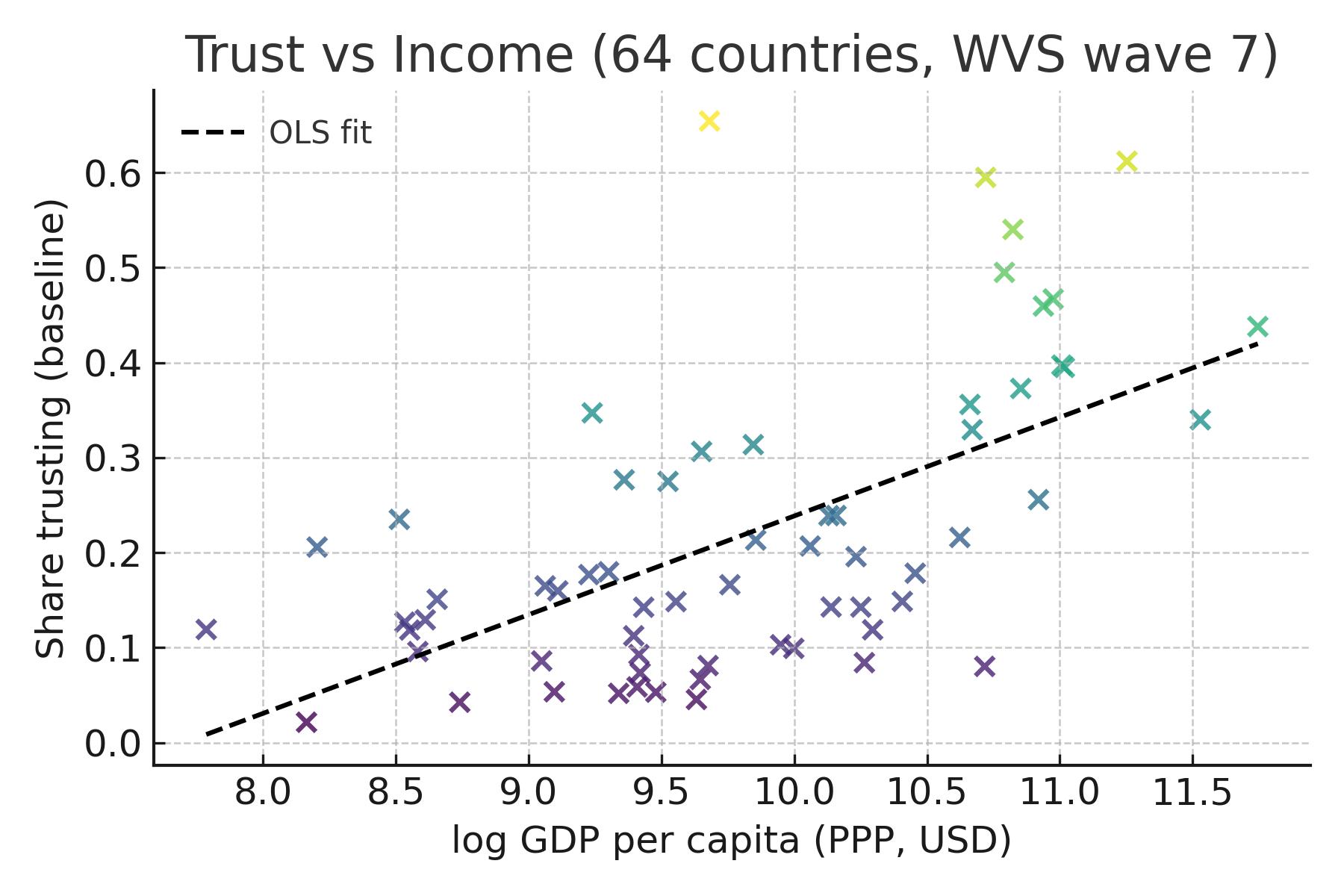Income and Trust
World Values Survey Wave 7; N = 64 countries
Introduction
We examine whether national income levels are associated with interpersonal trust. Trust is central to economic performance and social cohesion, and understanding its determinants can inform development policy.
Data & Measures
Income: GDP per capita, PPP (constant USD, log‑scaled).
Baseline trust: share answering “Most people can be trusted” (Q57).
Alternative trust index: reverse‑coded average of trust in neighbours, people known personally, first‑time met, other religion, other nationality (Q59–Q63).
Descriptive Pattern

Regression Results
Baseline trust
β₁ = 0.104 (SE 0.018, p = 0.000)
Alternative trust
β₁ = 0.137 (SE 0.030, p = 0.000)
Discussion
The positive coefficient indicates that richer countries tend to report higher levels of interpersonal trust. A one‑log (≈ 2.7×) increase in GDP per capita is associated with an average increase of 0.104 points in the baseline trust measure (on a 0‑1 scale). Results hold for the broader five‑item trust index.
Conclusion
Higher income levels correlate with greater trust. While causality cannot be established here, the pattern supports theories linking economic prosperity to social capital.